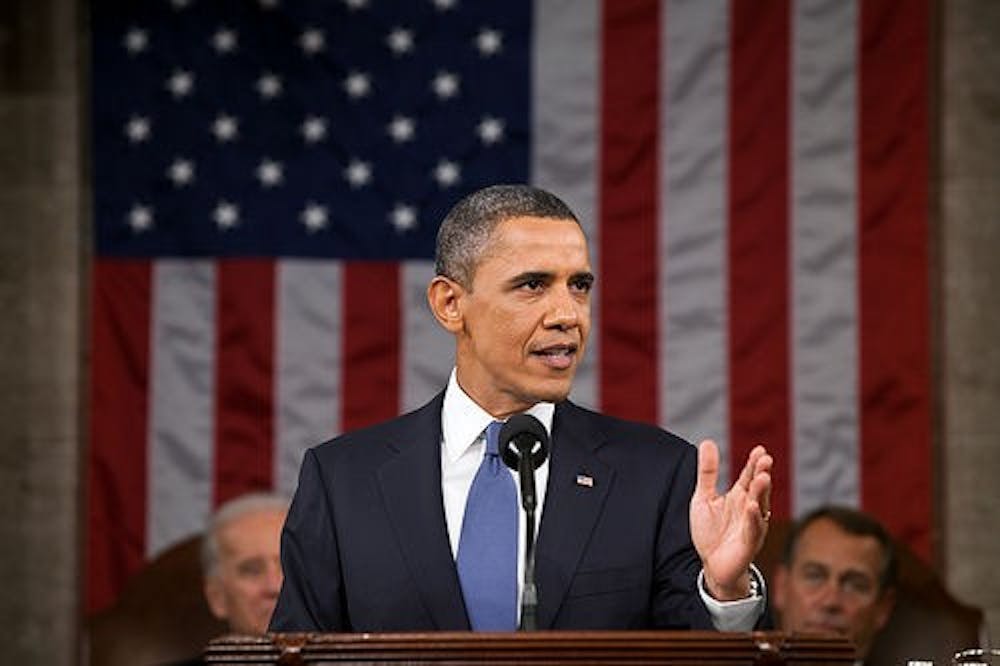President Barack Obama urged Congress to support middle class economics, and also encouraged support for women’s rights and LGBT issues and encouraged accessibility to higher education.
President Barack Obama spent much of his sixth State of the Union Address focusing on what he called “middle class economics" — part of which he said included broader access to higher education.
The speech was also the first State of the Union address ever to make mention of transgendered people, with the president echoing support for these individuals, as well as people who are gay, lesbian or bisexual.
The President further charged Congress with addressing women’s health care, child care and right to equal pay.
He maintained that he would veto any attempt by Congress to overturn the Affordable Care Act.
The speech, which took place Tuesday night in the House Chamber in Washington D.C., placed special emphasis on ensuring economic security for future generations, including those about to break into the workforce after graduating from college.
The address divided the President’s plan for middle class economics into three categories:
Benefits for middle class workers:
The President highlighted some of the economic growth over the past six years, citing a two-thirds cut in the deficit and the lowest inflation rate in 50 years. He then encouraged Congress to expand economic opportunities for middle class Americans.
Obama specifically charged Congress with closing tax loopholes used by some of America’s wealthiest one percent. The President added revenue raised from these reforms could be used to provide universal childcare, support college graduates in paying their student loan debts and regulate a minimum of seven days of sick leave for American workers.
Higher education accessibility:
The President called on Congress to make higher education more accessible, noting that two in three American jobs require some form of higher education. Specifically, he advocated for making two-year community college “as free and universal as American high school is today.”
Obama cited similar proposals in Tennessee and Chicago, where universal community college has already been successfully implemented.
Higher education would queue students up for rising jobs in nursing, coding and robotics, he said, stipulating that students would have to keep high grades and graduate on time in order to receive the universal community college benefits.
Infrastructure development:
The final tier of the President’s plan focused on developing “21st Century infrastructure,” including development in American business, science, technology and research.
Obama encouraged Congress to pass laws that could make American products more attractive to foreign consumers, while encouraging more corporations to set up shop in the U.S.
He further encouraged proposals to make the internet available to more classrooms and communities and to help fund medical research to find cures for diseases such as cancer and diabetes.
@wtperkins






